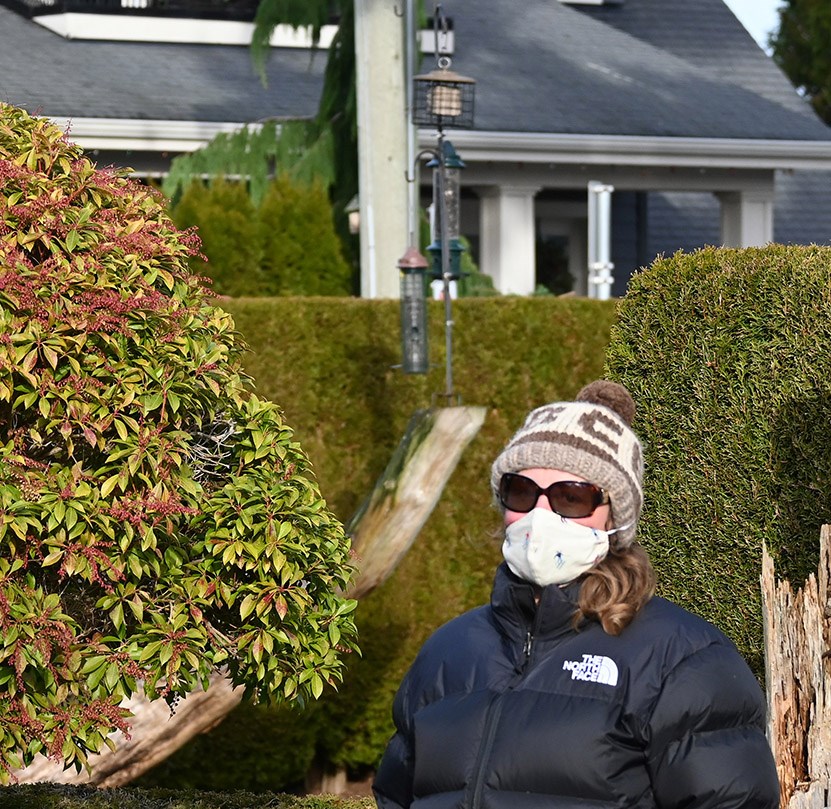Jennifer Keskula wishes to echo a plea from the Wildlife Rescue Association of BC: please take down your backyard bird feeder.
For the sixth time in the past couple of months, the Boundary Bay resident has found a dead Pine Siskins underneath a Douglas fir tree in her wonderfully maintained backyard.
“Occasionally, a bird of any variety can fly into your window because we have such beautiful views here and a lot of us have windows all along our houses, so I have gone through a lot of trouble to put the stickers up for the birds to see and even had bird netting up on my glass deck,” explained Keskula. “When I find a bird dead further from the windows I started to ask myself why?”
What Keskula learned was an alarming trend well beyond her neighbourhood.
The Wildlife Rescue Association of B.C. says it has admitted 78 Pine Siskins from across Metro Vancouver due to a potential and rapid outbreak of something called salmonellosis.
“Pine Siskins, a songbird found in the Lower Mainland are common to suffer from salmonella and the disease can spread because of its congregating behaviour in backyard feeders during the winter,” says a news release. “Once a bird is infected, mortality rates rapidly increase among all birds who contact the feeder. Distressed birds must be handled safely and with care to prevent the spread through animals and humans.”
Wildlife Rescue says it is working with Canadian Wildlife Services to confirm the disease.
“If you witness a sick bird, it is imperative to take the feeder down immediately for at least 14 days to prevent flocking. This will help to disperse the birds and limit their exposure to the concentrated feeder,” said Janelle Stephenson, Wildlife Rescue Hospital manager.
Wildlife Rescue encourages natural feeding behaviours by removing the feeder before the winter months and returning it when the warm weather returns in the spring.
The other option is cleaning all bird feeders once a week with a 10 percent bleach solution to kill the spread and kill salmonellosis, and rinsing with water afterwards.
As for Keskula, she only has a hummingbird feeder on her property that she meticulously cleans weekly.
“I put a tinsy winsy percentage of bleach in water then I take a pipe cleaner, put it in the solution and I use it to clean every single hole,” she added. “If you look really closely you can see the mold.”
If you find sick or infected birds, call the Wild Rescue Support Centre at 604-526-7275 for safe-handling procedures to bring the animal in for assessment and removal.
-With files from the Burnaby Now



